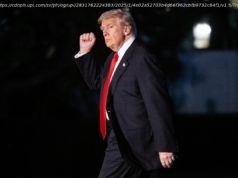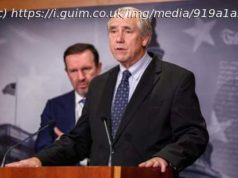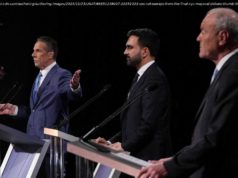As the leaders of the 193 members of the United Nations converge in New York for their annual meeting, attention is on the unpredictable behavior of President Trump.
UNITED NATIONS — Diplomats at the United Nations have by now learned to expect the unexpected from President Trump, who threatened to annihilate North Korea and “crush loser terrorists” during his debut speech at the General Assembly a year ago.
But at this year’s convergence of world leaders in New York, which begins in earnest on Tuesday, Mr. Trump will command an additional stage. Aside from his speech, he will lead a meeting of the 15-member Security Council, the most powerful body of the United Nations.
There are plenty of pressing issues for world leaders to discuss — wars in Yemen and Syria that have killed hundreds of thousands of people; negotiations over North Korea’s nuclear program; and the fate of the Iran nuclear accord, which Mr. Trump repudiated but European leaders want to preserve.
Underlying Mr. Trump’s appearance is an increased sense that the United States, which helped found the United Nations after World War II, is isolating itself. His administration has moved to cut the United Nations budget and renounced participation in some of the organization’s most prominent agreements and agencies.
These include accords on climate and migration, and the Human Rights Council, Unesco and the agency that helps the 5.5 million Palestinians classified as refugees.
Against this backdrop, here is a look at important issues and events this week at the annual General Assembly:
As he did at his appearance at the United Nations last year, expect Mr. Trump to command extraordinary attention within the General Assembly chamber and at high-level meetings over the coming week.
He is expected to make not one but three appearances this year. He began on a conciliatory note on Monday, describing the secretary general, António Guterres, as “a great friend” during a forum on the scourge of illegal drugs around the world.
“I’ve always said the United Nations has tremendous potential, and that potential is being met,” Mr. Trump said. “Slowly but surely, it’s being met.”
But the most anticipation — and anxiety — surrounds Mr. Trump’s speech before the General Assembly on Tuesday, and then the Security Council session he will preside over on Wednesday.
Will he insult a world leader or pull out of a major international treaty? Will he threaten action against the International Criminal Court, which his national security adviser, John R. Bolton, did recently?
What will happen at the Security Council session, which Mr. Trump will chair because the United States currently holds the council’s rotating presidency, has already proved confusing.
The meeting was originally supposed to be focused on Iran, until administration officials realized that under United Nations rules, Iranian officials, including Iran’s president, Hassan Rouhani, would be welcome to participate. To avoid that spectacle, the topic was changed to nonproliferation.
Then, last Friday, Mr. Trump tweeted: “I will Chair the United Nations Security Council meeting on Iran next week!”
As Nikki R. Haley, the United States envoy to the United Nations, said, “I’m sure it will be the most watched Security Council session ever.”
Mr. Trump caused an uproar last year when he used his speech before the General Assembly to mock North Korea’s leader, Kim Jong-un, referring to him as “rocket man” and to his country as a “band of criminals.”
Since then, the relationship between the two leaders has transmogrified into something of a bromance, punctuated by a historic summit meeting in June when Mr. Trump praised Mr. Kim as “a very talented man,” and floated the idea of building condos on North Korea’s unspoiled beaches — the ultimate sign of approval from the real estate magnate.
On Tuesday, in his speech, Mr. Trump is expected to tout his reconciliation with Mr. Kim even though North Korea remains a nuclear-armed state. The speech will be followed on Thursday by a formal session on North Korea that will be led by Secretary of State Mike Pompeo.
Unlike last year, when aides fretted over Mr. Trump’s belligerence and bombast, it is his tendency toward comity with the North Korean leader that now worries White House advisers.
At the United Nations on Monday, Mr. Trump said he expected to hold a second summit meeting with Mr. Kim “in the immediate future.”
Also on Monday, the president held talks with President Moon Jae-in of South Korea, who has sought to be a diplomatic intermediary with Mr. Kim. The South Korean leader wants concessions from Mr. Trump, including a formal declaration ending the Korean War.
The concern, according to Mr. Trump’s aides, is that he could give up too much. North Korea has already secured major concessions, like a cessation of joint military exercises between the United States and South Korea, all without making a firm commitment to full nuclear disarmament.
Mr. Trump also has offered to talk with President Rouhani of Iran. The Iranians have said that given Mr. Trump’s avowed hostility, there is nothing to talk about.
Still, any sign of contact between the United States and Iran on the sidelines of the United Nations meetings will be scrutinized.
The leaders of Britain, France and Germany, the closest American allies, have openly broke with Mr. Trump on his approach to Iran, and have been seeking to preserve the nuclear agreement. Any sign during the General Assembly meetings that they have managed to persuade Iran to continue abiding by the accord, even without American participation, also will be closely watched.
The presidents of China and Russia are not attending the United Nations meeting this year, eliminating potential dramatics with Mr. Trump.
But the top leaders of other countries that have been in the news lately could prove interesting.
The presidents of Venezuela and Nicaragua, who detest Mr. Trump, will be delivering General Assembly speeches. So will the new presidents of Cuba, South Africa and Zimbabwe.
And many are eagerly awaiting the debut of New Zealand’s 38-year-old prime minister, Jacinda Ardern, the world’s youngest female leader as well as a new mother.






